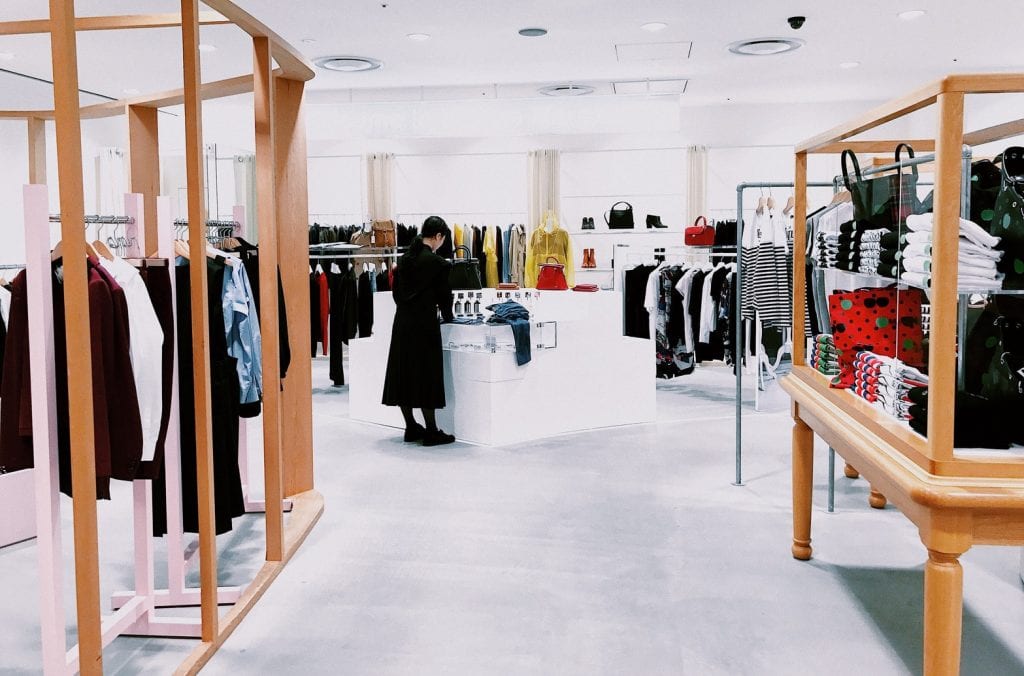Imagine this: your state or city has allowed retail outlets to re-open, and you venture out to engage in some long overdue “revenge spending.” After waiting months to try on clothing for summer, you arrive at your favorite store, shopping starved as a result of the quarantine, and are met with a document that you have to sign before any consumption can commence. The waiver essentially mirrors one that might sign before going skydiving, instead of signing away any rights to sue if you injure yourself (or die) while jumping out of an airplane, you are giving up rights to initiate litigation if you contract COVID-19 while you are browsing dresses. If such a waiver sounds utterly unrealistic, think again.
Now that many non-essential businesses – from salons and gyms to apparel retailers – across the country are reopening their doors to customers (often in limited capacities for the time being), many are searching for ways to limit liability relating to potential COVID-19 infections. To that end, some companies are considering whether to impose COVID-19 liability waivers upon employees, customers, contractors and others, thereby, raising questions about whether such waivers are appropriate and whether they would effectively allow brands to escape liability.
Hardly an unheard of tactic, as recently as this past week, Reuters reported that salons, gyms, retail stores and even the New York Stock Exchange have “introduced waivers” – for customers and/or employees – that enable these entities to try to “disavow [legal] responsibility for anyone who might contract the disease onsite.”
Looking beyond the potential for bad publicity that could come about as a result of COVID-19 waivers, and the likely decline in employee morale that would coincide with such use, requiring store or office visitors and/or employees that are returning to work to sign a COVID-19 waiver – essentially, a contract in which a party knowingly and voluntarily gives up a legal right, and which typically include provisions like an assumption of risk, covenants not to sue, and indemnification – is problematic in several respects.
In terms of employees, Vorys Sater Seymour and Pease LLP’s Charles Billington and Robert Harris say that these waivers very well may not be effective given that state workers’ compensation statutes are “normally an employee’s exclusive remedy against an employer for injuries and occupational diseases arising in the course and scope of employment.” But since “employees are not permitted to prospectively waive their rights under state workers’ compensation laws,” a return-to-work waiver seeking to limit liability related to an employee contracting COVID-19 whole on the job would not be enforceable in this context.
So, forget workers’ compensation actions for a moment, and assume that an employee contracted COVID-19 at work and opted to file a lawsuit against her employer by way of a tort claim, alleging that because of her employer’s willful conduct, she became infected with COVID-19. Would a waiver be helpful in this situation? Again, probably not. “While many states allow prospective waivers of negligent conduct, the general rule is that such waivers do not apply to gross negligence or to willful or intentional conduct,” according to Billington and Harris.
While COVID-related liability waivers are not likely to be binding upon employees, they might have some utility to companies, nonetheless. They “may be effective for companies that aim to avoid or at least limit liability for claims from vendors or independent contractors who perform work for the business,” Billington and Harris assert.
As for customers, some businesses are considering whether to require individuals to sign waivers before entering into their stores or other outposts, but should not do so without “carefully considering if the benefits derived from such waivers outweigh the potential drawbacks.” For one thing, it is worth considering whether such waivers are typical for your industry. An individual that is visiting a retail store to buy a pair of jeans, for example, almost certainly would not expect to sign a waiver. A gym member, on the other hand, is likely more accustomed to signing such a waiver in connection with his membership.
In addition to considering industry-specific elements, such as the prevalence of waivers more generally, companies should weigh the potential effectiveness of a waiver in protecting against prospective claims of negligence with whether requiring customers (or even potential customers) from signing away their rights might result in a loss of business. In other words, will requiring customers, eager to engage in retail therapy after months of sheltering in place, to sign a waiver in order to enter into your store prompt them to look elsewhere? After all, “requiring waivers could very well send customers to competitors and/or cause them to question the safety and sanitation practices of a business,” which could prove a blow to a brand’s bottom line.
At the same time, the consumers who lined up outside of Hermès’ Guangzhou flagship store on the first Saturday that it reopened in the wake of COVID-19 closures in China, helping the Paris-based leather goods brand to generate a reported $2.7 million in a single day, very well might have signed such a waiver given that at least some of Hermès’ offerings cannot be procured online. The same might prove true for the likes of Supreme, the streetwear brand that drew lines of devoted fans in New York, even as news of the increasing scale of the spread coronavirus made headlines in March.
Ultimately, Billington and Harris state that waivers are not uniform solution for companies seeking to protect themselves as closure restrictions begin to fade. “If drafted carefully, they may provide limited but potentially valuable benefits with respect to contractors, visitors, and customers.” However, they note that “no strategy regarding waivers can replace the need for an employer to take reasonable steps to protect its employees and others who enter its premises and to comply with applicable government requirements regarding COVID-19.”











